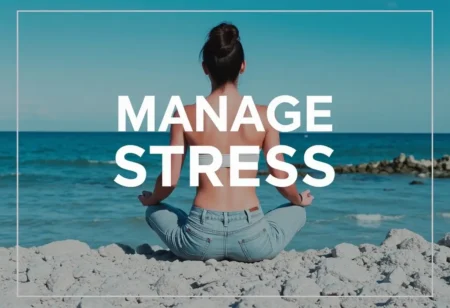Have you thought about how some stress can actually be good for you? Not all stress is bad. In fact, “good stress,” or eustress, can bring many benefits to your health. But how can you find and use the positive effects of good stress to improve your well-being?
Key Takeaways
- Understand the difference between eustress (good stress) and distress (negative stress)
- Discover how the hormetic stress response can boost your resilience and adaptability
- Learn how good stress can fuel your motivation, creativity, and personal growth
- Explore the link between positive pressure and peak performance
- Gain strategies for cultivating a healthy relationship with good stress in your daily life
Understanding the Role of Positive Stress
Stress is not always bad. It can be good or bad for us. Knowing the difference between eustress (good stress) and distress (bad stress) is key.
Differentiating Stress from Distress
Eustress makes you feel motivated and challenged. It helps you grow. For example, starting a new job or training for a marathon can be exhausting.
Distress, however, is harmful and overwhelming. It can cause burnout, anxiety, and health problems.

The Hormetic Stress Response
The hormetic stress response shows how some stress is good. When stress is not too much, it makes your body stronger. It’s like how exercise makes muscles stronger.
By understanding this, you can use positive stress to improve your health and well-being.
Good Stress and Motivation
Good stress can be a strong motivator. It pushes you to go beyond your limits and reach your full potential. This positive stress, or eustress, is linked to intrinsic motivation. It helps you achieve a state of flow—a focused, energized, and rewarding experience.
Achieving a Flow State
By embracing good stress, you can enter a flow state. Here, you’re fully absorbed in your task, and time seems to disappear. This state boosts motivation and can lead to peak performance.
In a flow state, you tap into your innate abilities. The sense of accomplishment is truly transformative. Striking the right balance between good stress and challenge is key. By pushing yourself just beyond your comfort zone, you harness the energy of good stress. This energy helps you achieve your goals and reach new heights of success.
Embracing Challenges for Personal Growth
Seeking a fulfilling life means seeing positive stress and challenges as keys to personal growth. Stepping out of your comfort zone leads to deep self-discovery and builds strong resilience.
When you face a challenge, you might want to hide or take the easy way out. But facing your fears and pushing through can make you stronger. It changes how you see things and helps you grow.
Positive stress is not something to dread but to use for your benefit. By seeing challenges as chances to grow, you turn obstacles into stepping stones. This leads to a more rewarding and resilient life.
Good Stress and Resilience
Positive stress can be a powerful tool for building resilience and mental toughness. It helps you develop coping mechanisms and a positive mindset when facing challenges. This hormetic stress response, triggered by eustress, can actually help you grow stronger.
Building Mental Toughness
By embracing positive stress, you can expand your comfort zone and grow personally. This process of adapting and overcoming obstacles makes you more resilient. It helps you bounce back from setbacks more effectively.
It’s important to have coping mechanisms to build resilience. Mindfulness, positive self-talk, and active problem-solving can help you see stressful situations in a new light. These skills help you stay in control and emerge stronger from challenges.

The Benefits of Positive Pressure
Embracing positive stress or positive pressure can bring many benefits to your well-being. Not all stress is bad. The right amount of positive pressure can help you grow, stay motivated, and perform at your best.
When you face positive stress, your body releases hormones like adrenaline and cortisol. These hormones can boost your thinking, focus, and ability to bounce back. This stress response helps you adapt and succeed in tough situations.
Also, positive pressure can improve your physical performance. A bit of stress can make your muscles stronger, improve your heart health, and give you more energy. By using positive stress, you can reach new levels of physical and mental achievement.
Furthermore, positive pressure can greatly benefit your mental well-being. The right stress can put you in a flow state, where you’re fully focused and creative. This can lead to a stronger sense of purpose, better productivity, and personal growth.
Good Stress and Peak Performance
Embracing the right kind of stress can unlock your full potential. It leads to peak performance. Good stress, or eustress, boosts focus, creativity, and productivity. It lets you go beyond your limits, reaching new heights of skill and achievement.
Pushing Beyond Your Limits
By embracing positive stress, you can enter a flow state. You become fully focused on the task. This state not only improves your performance but also makes you enjoy the process more.
When you challenge yourself, you discover you can do more than you thought. Use good stress to become more productive, innovative, and resilient.
Whether it’s setting a new fitness goal, tackling a tough project, or exploring your creativity, good stress can help. It’s the key to reaching peak performance. By learning to handle the right kind of stress, you can thrive and reach your highest potential.
Cultivating a Healthy Relationship with Good Stress
Good stress, or *eustress*, is key for your well-being. But finding the right balance is vital. This ensures positive stress motivates and grows you, not weighs you down. A healthy relationship with good stress needs a thoughtful approach.
Finding the Right Balance
Finding the perfect stress level is crucial. *Too little stress* can make you bored and unmotivated. On the other hand, *too much stress* can cause burnout and anxiety. It’s about managing stress well and learning to thrive under pressure.
Stress management techniques like mindfulness practices, regular exercise, and prioritizing self-care are helpful. These habits prepare you to face life’s challenges. They help you use good stress to grow personally and professionally.
Good Stress in Daily Life
Adding good stress to your daily life can change everything. It helps you grow and feel fulfilled. This way, you keep a healthy balance between work and personal life.
Your life is full of different experiences, at work and in your free time. Look for good stress in your tasks, hobbies, or social life. These can make you more motivated, productive, and help you grow.
It’s important to add good stress to your routine. Try new things, like setting big goals or trying new activities. This will help you learn more about yourself and your abilities.
But it’s also important to watch out for too much stress. Make sure the good stress you have doesn’t hurt your well-being. Finding the right balance will help you succeed in both your personal and professional life.
Good Stress and Professional Success
Learning to handle *good stress*, or eustress, can change your career game. It helps you grow in your job and reach new heights. When you face tough projects or high-pressure situations, eustress can boost your performance.
Thriving Under Pressure
In today’s fast and competitive business world, being able to handle stress well is key. *Good stress* improves your focus, drive, and problem-solving skills. This lets you take on tough tasks with confidence.
By managing *good stress* well, you become a valuable asset to your company. Employers look for people who can handle pressure well. This can lead to more opportunities and career growth.
Integrating Good Stress into Your Well-being Routine
Embracing good stress, or eustress, is a lifestyle choice. It can boost your overall well-being. By adding good stress to your daily life, you can grow and take care of yourself better.
Find activities that make you excited and look forward to them. These could be sports, learning new things, or trying new social experiences. Doing these activities regularly keeps you motivated and fulfilled.
Also, set goals that challenge you, in work or personal life. Taking on challenges builds resilience and mental strength. This positive pressure helps you reach your best performance.
It’s important to find the right balance with good stress. Don’t overdo it to avoid burnout. Start small, celebrate your wins, and keep looking for ways to add good stress to your life in a healthy way.
Conclusion
Embracing good stress, or eustress, can greatly improve your well-being. It helps in personal growth and professional success. By understanding the difference between eustress and distress, you can use stress positively.
This article showed how good stress boosts motivation and helps you perform at your best. It also builds mental toughness. By facing challenges and finding the right balance, you can grow personally and professionally.
Remember, adding good stress to your life is a journey of self-discovery. Stay mindful and adaptable. Commit to your goals. This way, you can use eustress to achieve more success and happiness.








